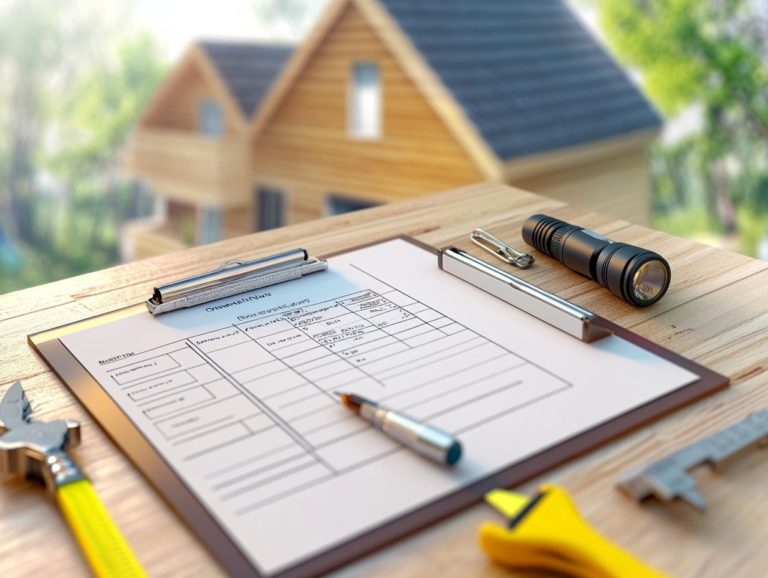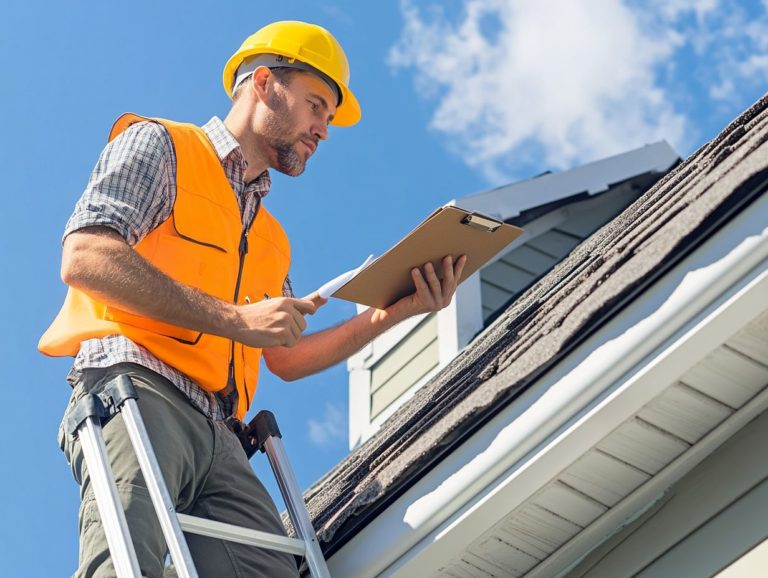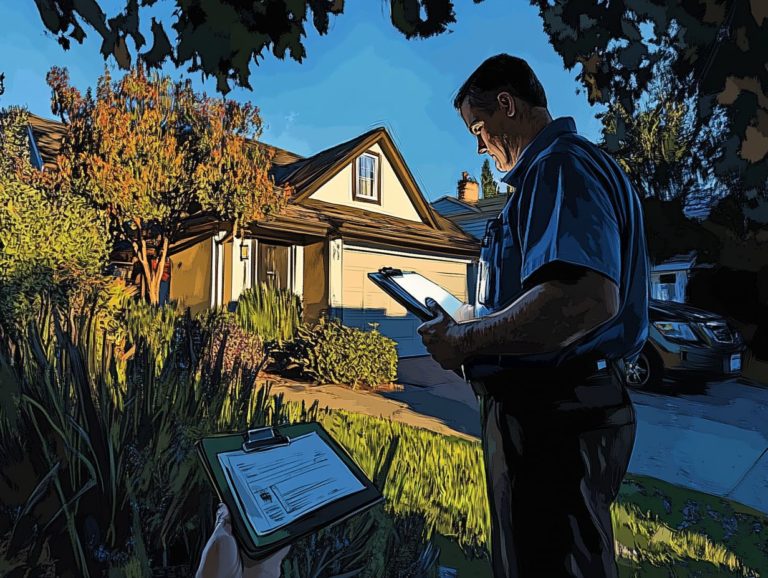How to Get the Most Out of Your Home Inspection
Buying a home ranks among the most significant investments you’ll ever make, and ensuring your future sanctuary is in excellent condition is absolutely essential.
Home inspections are a crucial part of this journey, revealing potential issues that could transform your dream home into a nightmare. This article delves into the importance of home inspections, what you can expect during the process, common problems to keep an eye out for, and tips on how to maximize the value of your inspection report.
Whether you re a first-time buyer or a seasoned homeowner, grasping these elements can empower you to protect your investment and uphold your home’s value over time.
Contents
- Key Takeaways:
- The Importance of Home Inspections
- Preparing for a Home Inspection
- What to Expect During a Home Inspection
- Common Issues Found During Home Inspections
- Maximizing the Results of Your Home Inspection
- Dealing with Major Issues Found During Inspection
- Continuing to Monitor Your Home’s Condition
- Frequently Asked Questions
Key Takeaways:
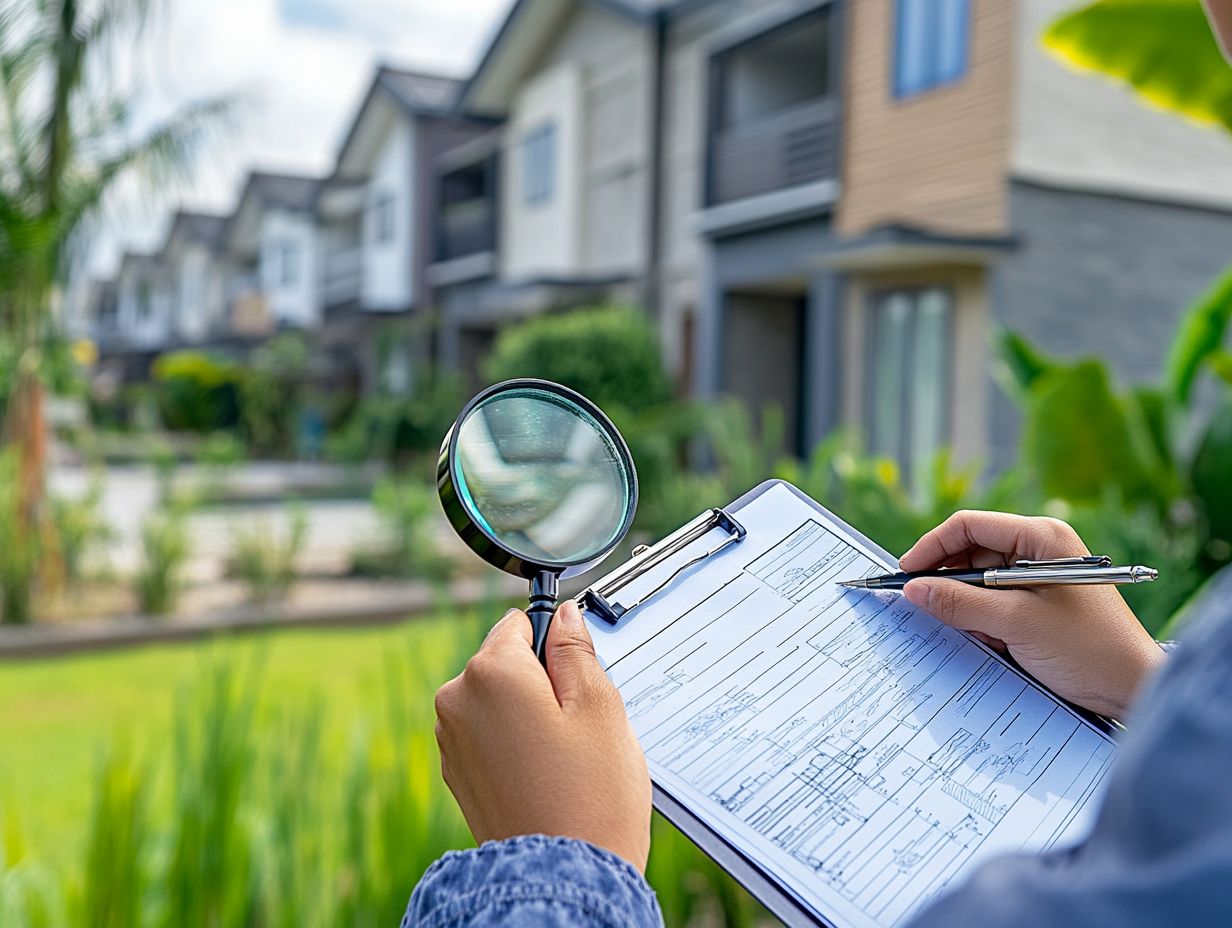
Don’t underestimate the importance of a home inspection— it can uncover potential problems and save you money in the long run. To ensure you’re ready, check out how to prepare for a home inspection.
Prepare for your home inspection by decluttering, making repairs, and knowing how to prepare your home for a successful inspection by being present during the inspection process.
Maximize the results of your home inspection by carefully reviewing the report, addressing common issues, and taking action on major problems. To further enhance your experience, check out how to make the most of your home inspector’s expertise.
The Importance of Home Inspections
Home inspections are an essential part of the home buying journey, offering you a detailed evaluation of a property’s condition before you commit to the purchase.
During this process, a licensed inspector meticulously examines various aspects of the home think roof, foundation, plumbing, and heating, ventilation, and air conditioning system (HVAC). This comprehensive assessment uncovers any safety concerns or substantial damage that might compromise the strength and stability of the structure and future maintenance.
By grasping the true condition of a potential home, you give yourself the power to make informed decisions and possibly negotiate repair requests with the sellers, ultimately securing a safe and sound living environment.
Why Home Inspections are Necessary
Home inspections are essential for uncovering potential issues that could escalate into major problems or significant damage after you purchase a home, ensuring your well-being and safety as a buyer.
These assessments explore critical aspects, such as the structural integrity of the foundation and the functionality of electrical systems areas that can become quite costly to repair if neglected.
A comprehensive inspection report does more than highlight these major concerns; it also offers vital recommendations for repairs. This information gives you the power to negotiate fixes or even reconsider your purchase if necessary.
By fully understanding the findings of the inspection, you can make well-informed decisions that contribute to a smoother transition into your new living space, allowing you to settle in without the shadow of unexpected hazards.
Preparing for a Home Inspection
To prepare for a home inspection, follow these essential steps for a successful home inspection to ensure you maximize your experience and fully grasp the property you’re considering.
Before the inspector arrives, make sure you’re wearing comfortable shoes and ready to engage with questions throughout the process. Being proactive allows you to gain valuable insights into potential safety concerns and equips you with essential home maintenance tips. For more detailed guidance, check out these tips for a successful home inspection day that will serve you well on your journey to homeownership.
What to Do Before the Inspector Arrives
Before the home inspector arrives, take the time to prepare by completing a comprehensive home inspector checklist that highlights all areas of the property needing attention. This preparation is essential for ensuring a seamless inspection process.
Start by tidying up the home; a clean and organized environment allows the inspector to conduct a thorough assessment without unnecessary distractions. Make sure that all areas are easily accessible, including the attic, garage, and any crawl spaces. To learn more about this process, check out how to prepare for a home inspection as a buyer. Clearing these spaces not only facilitates the inspector’s work but also helps avoid any delays during the assessment.
Compile a list of questions for the inspector regarding potential maintenance issues. This will enable you to gain a clearer understanding of the property s condition and what to expect moving forward.
By being proactive, you demonstrate a commitment to informed homeownership, setting a solid foundation for your investment.
What to Expect During a Home Inspection
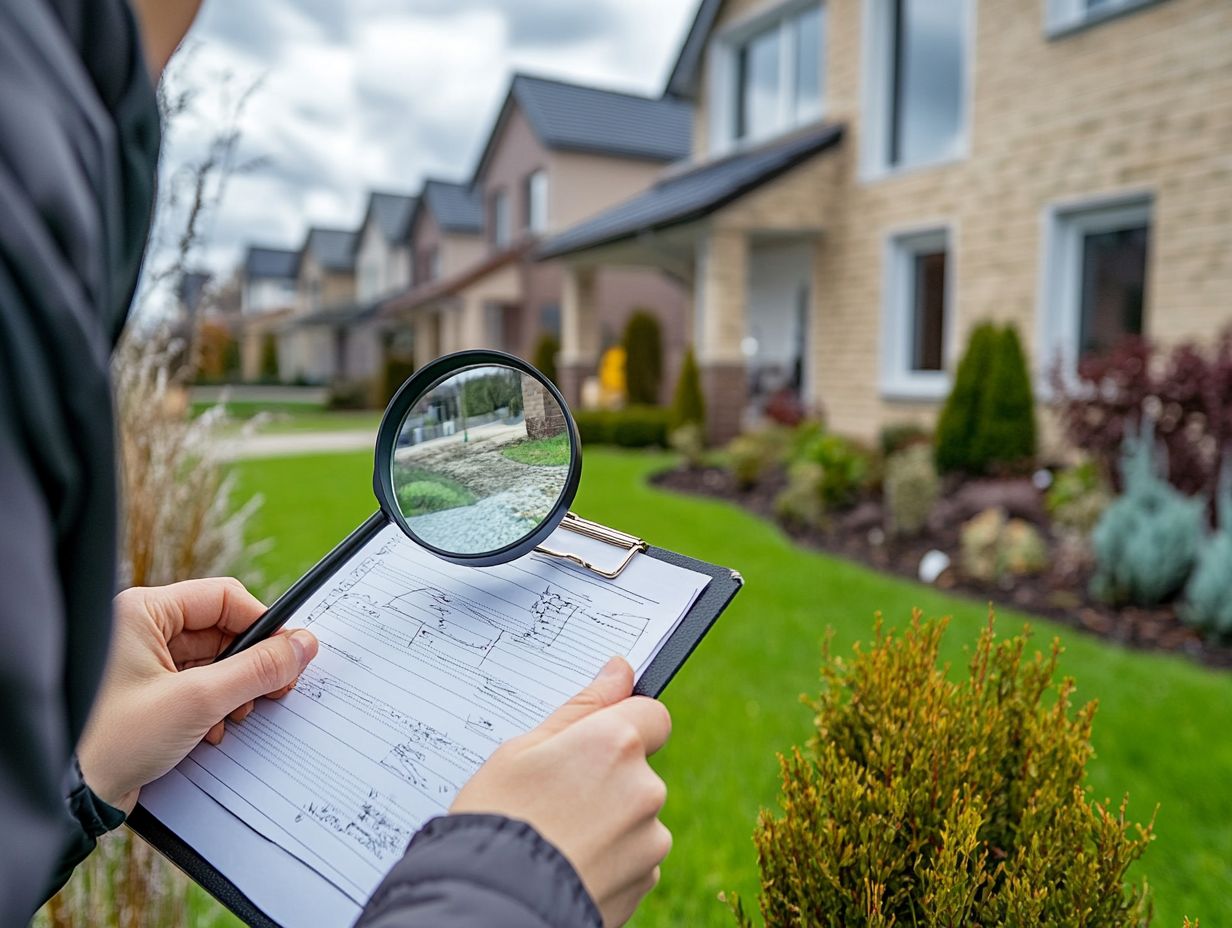
During a home inspection, you can expect a detailed visual examination of the property. A licensed inspector will look closely at various components to provide an accurate overview of the home’s condition.
This process typically includes checking the foundation, electrical systems, plumbing fixtures, and heating, ventilation, and air conditioning (HVAC) systems, among others.
This thorough evaluation helps inspectors identify safety issues or potential concerns that could affect the home s structure or the well-being of its occupants.
Be sure to ask questions during the inspection to get the most out of it! Additionally, knowing how to prepare for a home inspection can enhance your understanding of the findings, which will be compiled in a report that serves as a valuable reference for future home maintenance.
Step-by-Step Walkthrough of the Inspection Process
The inspection process kicks off when the home inspector arrives on-site. They will present their credentials and outline the steps they ll follow during the visual inspection.
This initial introduction establishes a professional evaluation, building trust between you and the inspector. Once introductions are complete, the inspector will examine key areas like the foundation, roof, plumbing, electrical systems, and HVAC units.
Equipped with modern tools like HomeGauge software, they meticulously document every detail, ensuring nothing slips through the cracks. By using these advanced tools, the accuracy of the inspection is greatly enhanced.
It’s important to choose inspectors who have both experience and the right credentials to provide a comprehensive home assessment.
Common Issues Found During Home Inspections
During home inspections, you may encounter various issues, from minor repairs to significant concerns that could jeopardize safety or the property’s integrity.
Inspectors often highlight foundation issues, electrical faults, and plumbing problems that may require immediate attention or repair requests from buyers.
Identifying these issues early on empowers you to make informed decisions about your home purchase and plan for necessary repairs.
Identifying and Addressing Common Problems
Recognizing and tackling common issues during a home inspection can help you avoid potential safety hazards and costly repairs later on.
As a buyer, remain vigilant when reviewing the inspection report. Look out for significant red flags that could indicate deeper issues.
Don’t overlook signs like outdated electrical systems, plumbing leaks, or structural damage these shouldn t be dismissed lightly.
It’s crucial to recognize these major problems, as ignoring them can lead to extensive repairs and financial strain. By addressing these concerns proactively, you empower yourself to negotiate effectively with sellers.
Request that they complete necessary repairs before closing or offer financial concessions to help cover future repair costs. Taking prompt action allows you to safeguard your investment and ensure that your new home becomes the safe haven you envision.
Maximizing the Results of Your Home Inspection
Maximizing the results of your home inspection is essential for making informed decisions and ensuring a seamless home purchase process. To achieve this, it’s important to know how to prepare for your home inspection.
By carefully reviewing the inspection report, you gain valuable insights into the property’s condition and recommended repairs. This proactive approach strengthens your position when negotiating with sellers.
Additionally, it equips you with essential home maintenance tips that will serve you well in the long run.
Tips for Making the Most of Your Inspection Report
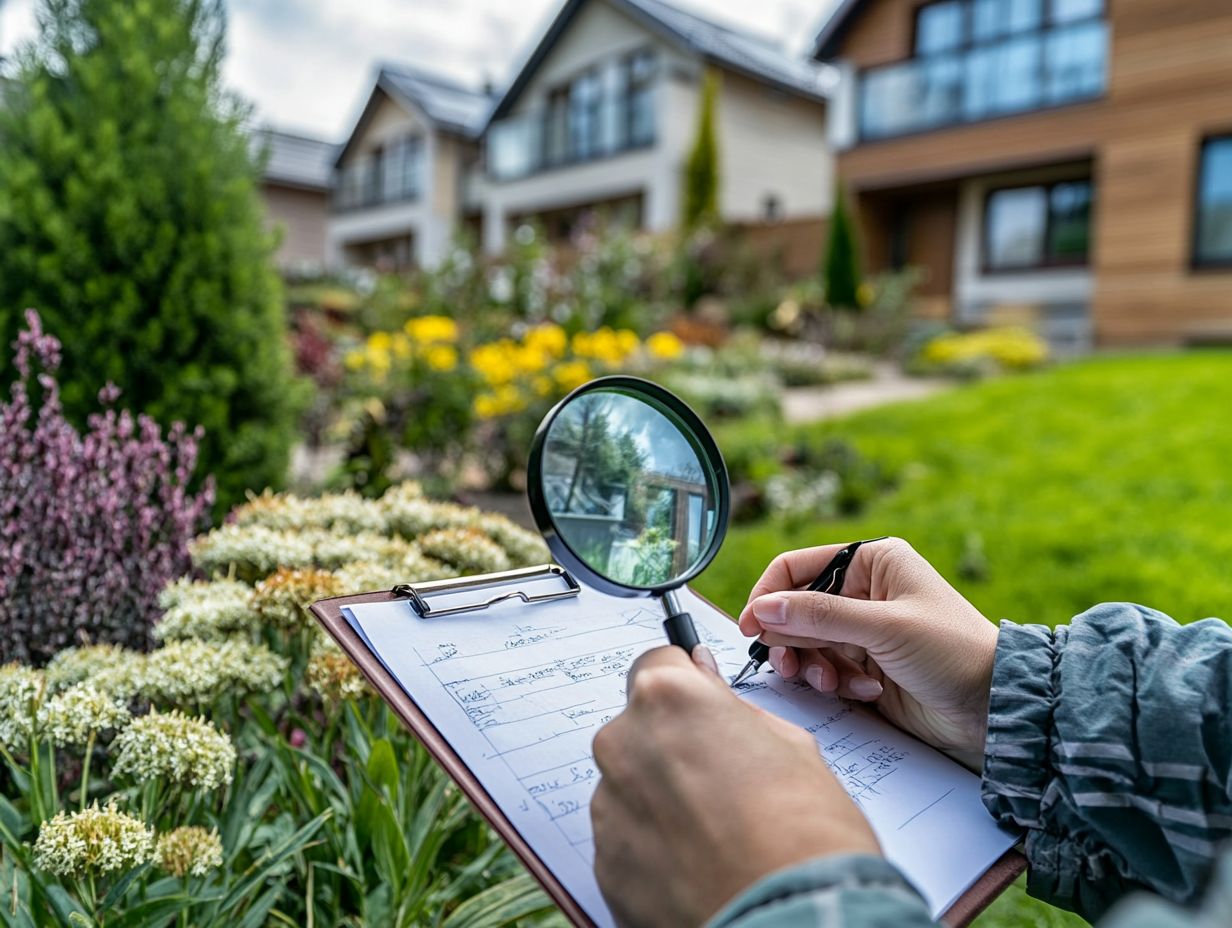
To truly leverage your inspection report, immerse yourself in its contents and wield it strategically during negotiations. By meticulously analyzing the details, you can pinpoint critical areas needing attention or immediate repair.
This isn’t merely about haggling for lower repair costs; it’s a chance for you to champion your future well-being in the home. Presenting these findings to sellers as part of your repair requests demonstrates your diligence and underscores your commitment to preserving the property s value.
Using this inspection as a foundation for ongoing maintenance can significantly mitigate potential health risks. This ensures that you, your family, and future occupants remain safe and secure in the space.
Dealing with Major Issues Found During Inspection
Navigating major issues uncovered during a home inspection can feel overwhelming. However, by learning how to prepare your home for an inspection, you can take the right steps to effectively address concerns and safeguard your investment.
Significant problems like structural integrity issues, which can affect the safety and stability of your home, or substantial damage to essential systems such as plumbing or electrical demand your immediate attention. As a homebuyer, it s crucial to engage directly with the seller regarding these findings.
Clearly present repair requests to ensure they fully understand the costs and implications associated with the necessary repairs.
Steps to Take if Major Problems are Discovered
If you discover major problems during a home inspection, it’s essential to take immediate action. This will address these issues and safeguard your investment.
Take proactive steps by evaluating repair costs associated with the identified concerns. Consulting qualified contractors for estimates and professional insights on the necessary repairs is highly advisable.
With this information, you’ll be in a strong position when negotiating with the seller about repair requests. Promptly addressing these findings helps ensure that your new home remains a sound investment, while also reducing the risk of further complications from delayed repairs.
Timely intervention is key to maintaining the integrity of your property.
Continuing to Monitor Your Home’s Condition
Keep a close eye on your home s condition to keep it safe and sound! Regular home maintenance informed by your inspection report can prevent future issues.
By adopting a proactive approach, you can sidestep larger problems stemming from neglecting routine evaluations and upkeep.
Maintaining Your Home and Addressing Future Concerns
Maintaining your home effectively and addressing future concerns is essential for preserving its value and ensuring a safe living environment. Regular inspections offer valuable insights into areas that may need your attention.
Consider implementing seasonal checks for your roofing, gutters, and plumbing these parts of your home can easily slip through the cracks over time. Paying close attention to the inspection report is crucial; it often highlights necessary repairs that can significantly extend the lifespan of various components within your home.
Taking an informed approach to upkeep not only enhances your comfort but also protects your finances. That’s why prioritizing recommended repairs and maintenance tasks throughout the year is imperative.
Frequently Asked Questions
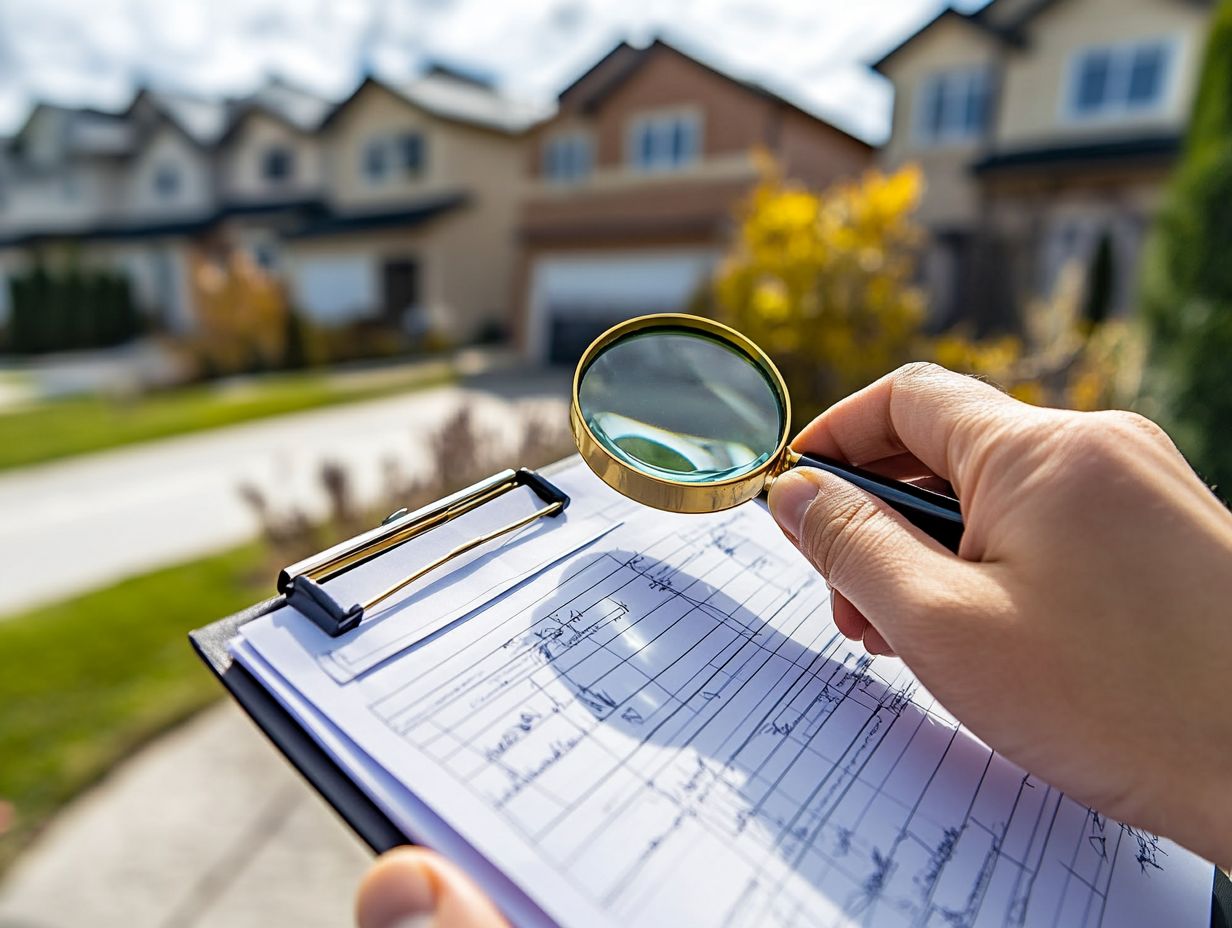
What is a home inspection?
A home inspection is a thorough examination of a property, typically done before buying or selling a home. It includes checking the structure, foundation (the base that supports your home), plumbing, electrical, and other essential aspects of the property.
Why is a home inspection important?
A home inspection is important because it provides buyers with an in-depth understanding of the condition of the property they are interested in buying. It can help uncover hidden issues that may not be visible to the untrained eye and can potentially save buyers from costly repairs in the future.
Don’t wait to address major problems; act now to protect your investment!
Ready to inspect your new home? Contact us today!
How can I get the most out of my home inspection?
To maximize your home inspection, hire an inspector who knows what they’re doing. Additionally, be present during the inspection and ask questions to clarify any findings; this way, you can learn how to make the most of your home inspection.
Take note of issues and discuss them with the seller. Finally, review the inspection report carefully and consider necessary repairs or negotiations.
How long does a home inspection take?
A home inspection usually takes about 2-3 hours. However, larger or more complex properties may require more time.
Do I need to be present during the home inspection?
It’s not mandatory, but being there is highly recommended. You can ask questions and better understand any issues that arise.
Plus, you ll see the property firsthand and identify areas needing attention.
Can I rely on the home inspection report?
A home inspection report offers helpful insights, but doing your own research is wise. If you have major concerns, consider getting a second opinion from a contractor or specialist.
Remember, the report may not cover every detail, so ask questions and address potential issues with the seller.

